In today’s philanthropic landscape, where competition for donor attention intensifies, the role of the fundraiser far transcends simple fund collection. They become true relationship architects, impact storytellers, and guardians of organizational mission. But what qualities distinguish an exceptional fundraiser from a mere donation collector?

1- Authentic Empathy: The Foundation of Every Philanthropic Relationship
Empathy undoubtedly constitutes the cornerstone of the fundraising profession. This ability to understand and share others’ emotions is not limited to a simple persuasion technique, but represents a genuine professional stance. A good fundraiser knows how to listen to their interlocutors’ concerns, whether it’s a major patron worried about their donation’s effectiveness or a regular donor concerned about seeing the concrete impact of their contribution.
Empathy is cultivated through attentive observation, active listening, and sincere curiosity about others. It also involves knowing how to recognize one’s own emotional limits to avoid professional burnout. An empathetic fundraiser doesn’t hesitate to say “I don’t know, but I’ll find out” rather than giving an approximate answer that could betray the established trust.
💡IDEA BOX: Systematically dedicate time to understanding each donor’s personal motivations to create lasting bonds that transcend financial transactions. This empathetic approach enables better donor retention.
2- Narrative Communication: Transforming Numbers into Human Stories
The ability to tell captivating stories represents a fundamental skill of the modern fundraiser. Donors don’t contribute to abstract budgets, but to concrete human transformations. Narrative talent creates an emotional bridge between the organization’s mission and the donor’s personal aspirations.
This skill far exceeds simple mastery of storytelling techniques. It requires a deep understanding of the organization’s challenges, an ability to identify the most striking elements in beneficiaries’ testimonials, and above all, a keen sense of adaptation according to the interlocutor. A story that touches a business leader sensitive to measurable results will differ from one intended for a family foundation motivated by intergenerational values.
Developing this skill involves regular field immersion, frequent meetings with operational teams, and constant work collecting and structuring testimonials. It also means learning to balance emotion without falling into pathos, and presenting verifiable facts without drowning the message in statistics.
💡IDEA BOX: Regularly train your fundraisers in the art of storytelling. This way, they can master a repertoire of authentic, verified stories that respect the dignity of the people involved. This method allows adapting discourse in real-time according to interlocutors’ reactions and questions, creating a personalized experience for each potential donor.
3- Relational Intelligence: Cultivating an Ecosystem of Trust
Relational intelligence perhaps constitutes the most subtle and determining quality of the accomplished fundraiser. It encompasses the ability to understand interpersonal dynamics, navigate complex networks, and maintain lasting relationships based on mutual trust and respect.
This intelligence manifests in the faculty to identify the right interlocutors within a foundation or company, understand internal decision-making processes, and adapt one’s approach according to each potential partner’s organizational culture. It also involves knowing how to handle refusals gracefully, preserving the possibility of future partnership.
To develop this relational intelligence, one should cultivate natural curiosity about others, learn to ask the right questions at the right time, and develop memory for personal details that make each interaction unique. This also requires maintaining a rigorous follow-up system and knowing how to delegate certain tasks to focus on the most strategic relationships.
💡IDEA BOX: Maintain regular contact with major donors, even outside fundraising campaigns, by sharing organizational news, inviting them to events, or seeking their advice on certain projects. This continuous relationship strategy significantly increases average donation values and reduces attrition rates.
4- Professional Authenticity: Staying True to Yourself in Service of the Cause
Authenticity paradoxically represents one of the most difficult qualities for a fundraiser to master. It consists of developing a personal style consistent with one’s personality while effectively serving the organization’s mission. This authenticity doesn’t mean absence of professionalism, but rather the ability to mobilize one’s natural qualities in service of fundraising.
Each fundraiser possesses personality traits that can become major professional assets. A naturally reserved person can develop a more intimate and in-depth approach, particularly appreciated by certain major donors who prefer to avoid overly aggressive solicitations. A more extroverted temperament can excel in fundraising event animation or presentations before large audiences.
The art consists of identifying one’s natural strengths and cultivating them, while working on weak points without seeking to deny them. A fundraiser who openly acknowledges their technical limitations but compensates with communicative passion for the cause they defend can often achieve better results than a technically perfect professional lacking sincere emotion.
💡IDEA BOX: Implement an internal mentorship program that allows each fundraiser to develop their personal style while benefiting from an experienced colleague’s advice. This approach respects each person’s individuality while ensuring acquisition of the profession’s essential skills.
Conclusion: The Fundraiser as Catalyst of Generosity
The excellent fundraiser doesn’t simply collect funds; they catalyze generosity by creating optimal conditions for the meeting between a cause and a donor to transform into lasting partnership. This transformation relies on a skillful blend of authentic empathy, narrative mastery, relational intelligence, and professional authenticity.
These qualities aren’t acquired overnight, but develop through experience, continuous training, and above all, constant reflection on one’s practices. The fundraising profession evolves rapidly, particularly under the influence of new technologies and generational changes in philanthropic behaviors. Only professionals who cultivate these fundamental qualities while remaining open to innovation will be able to effectively accompany organizations in their missions of general interest.
Excellence in fundraising ultimately resides in this capacity to remain profoundly human in an increasingly digitized world, to create meaning in an information-saturated environment, and to build trust in a society where it becomes increasingly precious.
Do you need expertise and support for your organization? Let’s talk about it!
To keep up to date with the latest articles, follow me on LinkedIn and subscribe to the newsletter.
Copyright © 2025 E | C Consulting – All Rights Reserved – To use this content, please ask for permission in advance and cite the source if agreed.
